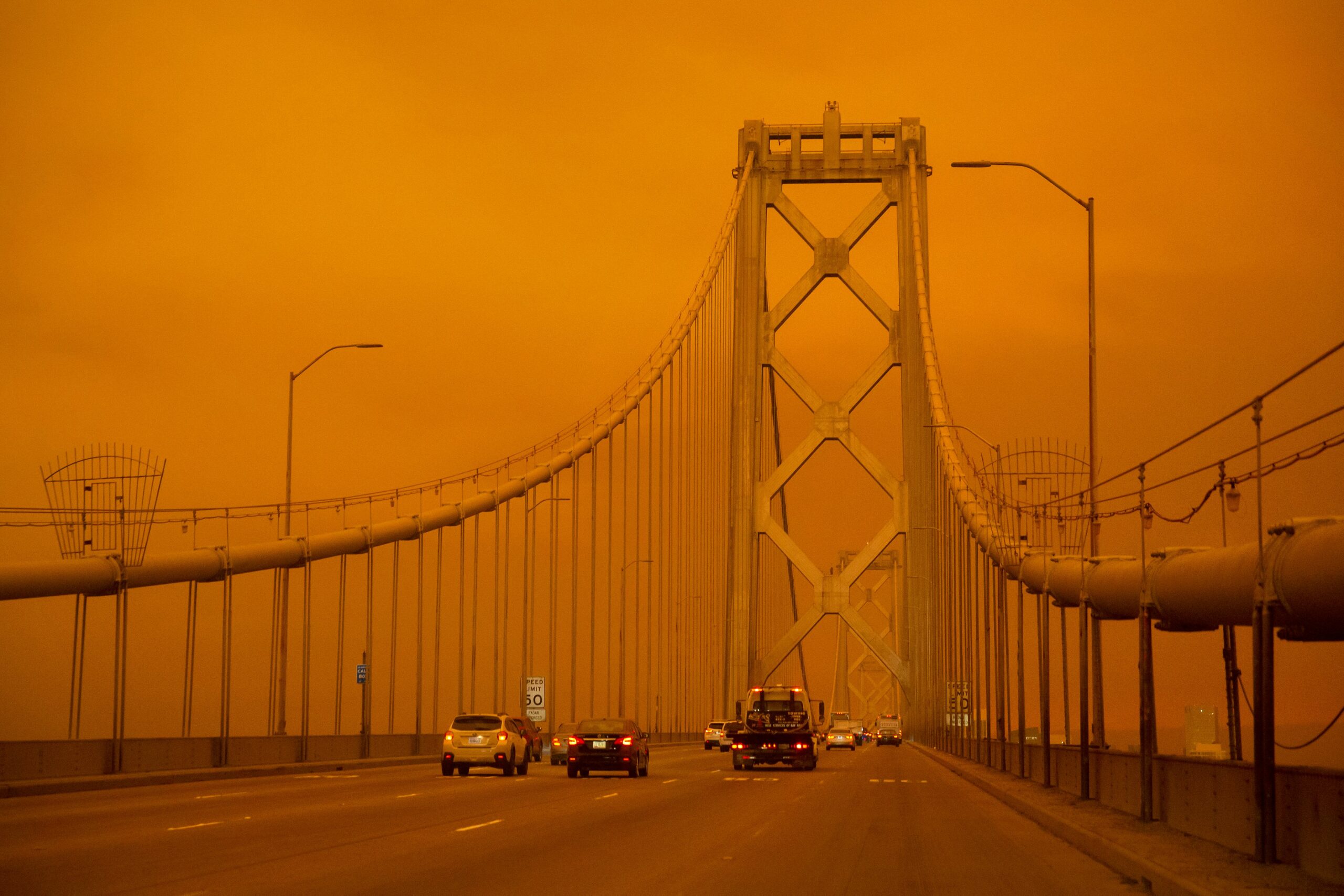Painting alarming scenes of fires, floods and economic disruption, the California Legislature’s advisors today released a series of reports that lay out in stark terms the impacts of climate change across the state.
The typically reserved, nonpartisan Legislative Analyst’s Office outlined dire consequences for Californians as climate change continues to alter most aspects of daily life. Much of the focus of the six-part series is detailing the economic cost as the changing climate alters where and how Californians build, grow food and protect the most vulnerable residents.
- Housing will be lost: For example, in the San Francisco Bay Area alone, 13,000 existing housing units and 104,000 job spaces “will no longer be usable” because of sea rise over the next next 40 to 100 years.
- Wildfires, heat and floods will force more frequent school closures, disrupting education, child care and availability of free school lunches. More than 1,600 schools temporarily closed because of wildfires each year between 2017 and 2020, affecting nearly a million students a year.
- Outdoor workers — 10% of California’s workforce and mostly Latino — will continue to bear the brunt of extreme heat and smoke.
- Wildfire smoke may have killed about 20 people per 100,000 adults older than 65 in 2020, and is projected to become more deadly. Just a 50% increase in smoke could cause the deaths of nine to 20 additional people among every 100,000 older residents exposed each year.
- Housing, rail lines, bridges, power plants and other structures are vulnerable to rising seas and tides. “Between $8 billion and $10 billion of existing property in California is likely to be underwater by 2050, with an additional $6 billion to $10 billion at risk during high tide.”
- Extreme heat is projected to cause nine deaths per 100,000 people each year, “roughly equivalent to the 2019 annual mortality rate from automobile accidents in California.”
- Lower-income Californians, who live in communities at greater risk for heat and floods because of discriminatory housing practices, will be hit especially hard by climate change and have fewer resources to adapt.
- Beaches will disappear, too: Up to two-thirds of Southern California beaches may become completely eroded by 2100.
The report’s unsaid but unambiguous conclusion: Climate change could alter everything, spare no one in California, so legislators should consider preparing for sweeping impacts.
“These hazards will threaten public health, safety, and well-being — including from life-threatening events, damage to public and private property and infrastructure, and impaired natural resources,” the reports say.
Scientists say it’s not too late to stop the most severe effects, although the clock is ticking. Technologies and other solutions already exist to reduce greenhouse gases from fossil fuels and other sources and prevent more irreversible harm, according to a landmark international scientific report released Monday. But international accords and plans continue to fall far short, with emissions expected to keep increasing.
“These hazards will threaten public health, safety, and well-being — including from life-threatening events, damage to property and infrastructure, and impaired natural resources.”
Legislative Analyst’s Office report
California’s legislative analysts did not conduct new research; instead, they compiled existing data and projections, providing a comprehensive clearinghouse for legislators as they enact policies and approve budgets.
State Sen. Bob Wieckowski, a Democrat from Fremont and chair of the budget subcommittee on resources, environmental protection and energy, said he plans to turn to the reports as references and rationale for the subcommittee’s budget proposals.
“It’s impressive,” he said. “(It) turns the climate conversation into an all-hands-on-deck versus, ‘Oh, this is just some tree hugger over here.’”
The analysts make no explicit policy recommendations but they advise legislators to consider such questions as: How can the state avoid exacerbating climate impacts? How can lawmakers protect the most vulnerable Californians? And how should California pay to prepare and respond to climate change?
Assembly Speaker Anthony Rendon, a Democrat from South Gate, asked the Legislative Analyst’s Office to assess the impacts of climate change on a variety of policy sectors, and the reports grew from there. They frame climate change as a complex, multi-disciplinary problem that requires response from all of the state’s agencies.
Project manager Rachel Ehlers said the aim is to assist lawmakers incorporate climate change into decisions outside of traditionally environmental realms, including housing, health and education. For instance, would a new housing policy “have the potential to inadvertently worsen climate change impacts?” she said.
Last year’s budget package reflected the overarching scope of the problem, proposing to spend $9.3 billion over three years to bolster the state’s responses to drought, floods, fire and sea level rise.
Despite the state’s climate-forward reputation, critics and many legislators note that California’s follow-through has been inconsistent.
The reports come in the lead-up to California Gov. Gavin’s Newsom’s May revision to his January budget blueprint, when the administration can reframe and update its proposals. Thus far, the proposed budget included more than $22 billion for climate change efforts that include protecting communities against wildfires and extreme heat.
Despite the state’s climate-forward reputation, critics and many legislators note that California’s follow-through has been inconsistent.
“I don’t at all feel that we are leading the world anymore,” Rendon, a Democrat from South Gate, told CalMatters last year.
Despite the passage of a $15 billion climate budget, California Environmental Voters, an advocacy group, gave the state its first “D” grade for what it called its climate inaction last year.
“We’re plagued by ‘climate delayers’ in Sacramento – members of the Legislature who talk about climate change but don’t back up those words with action,” CEO Mary Creasman wrote in a CalMatters commentary.
Last month, a coalition of California’s environmental justice advocacy organizations pushed for a phase-out of fossil fuels, and warned that clean air regulators have failed to adequately consider public health in crafting the state’s blueprint for curbing greenhouse gas pollution.
